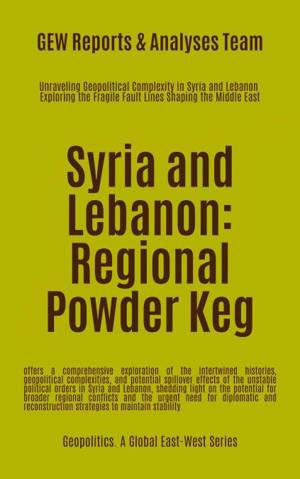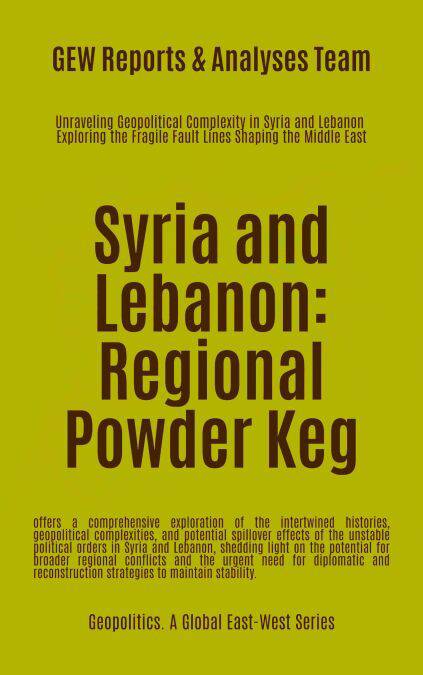
- Retrait gratuit dans votre magasin Club
- 7.000.000 titres dans notre catalogue
- Payer en toute sécurité
- Toujours un magasin près de chez vous
- Retrait gratuit dans votre magasin Club
- 7.000.0000 titres dans notre catalogue
- Payer en toute sécurité
- Toujours un magasin près de chez vous
Description
Syria and Lebanon: Regional Powder Keg
Syria and Lebanon share deeply intertwined histories shaped by alliances, conflicts, and a common cultural heritage. Today, they stand at the epicentre of one of the Middle East's most volatile landscapes, where fragile political orders threaten to ignite far wider regional crises.
This essay explores how instability in these two nations acts as a microcosm of the broader Middle Eastern struggle, revealing the interplay of geopolitical rivalries, sectarian divides, and historical grievances. Syria's brutal civil war—beginning in 2011—has drawn in Russia, Iran, Turkey, the United States, Israel, and Gulf states, turning the country into a dangerous arena for great power competition. The Assad regime's survival, reliant on foreign backing, has cemented new regional fault lines.
Lebanon's fragile sectarian power-sharing system faces unprecedented strain from economic meltdown, governance collapse, and the aftermath of the 2020 Beirut port explosion. Non-state actors, particularly Hezbollah, have filled the vacuum—blending political influence with armed capabilities. Hezbollah's alignment with Iran and tense rivalry with Israel creates one of the region's most dangerous flashpoints, with even limited clashes risking escalation into multi-front war involving external powers.
Refugee pressures—Lebanon hosts the world's highest per capita refugee population—fuel social and political instability. Shared water resources with neighbours such as Turkey, Israel, and Jordan add further stress, with climate change worsening scarcity and competition. Economic breakdowns in both countries ripple across the Eastern Mediterranean, while Sunni-Shia divides threaten to spread conflict to Iraq, Bahrain, Yemen, and beyond.
By analysing the internal, regional, and international dynamics at play, this work provides critical insight into why Syria and Lebanon remain a regional powder keg—and offers scenarios for the future, from escalation to potential paths toward stability through diplomacy, reconstruction, and governance reform.
Spécifications
Parties prenantes
- Auteur(s) :
- Editeur:
Contenu
- Langue:
- Anglais
- Collection :
Caractéristiques
- EAN:
- 9798231910779
- Date de parution :
- 18-08-25
- Format:
- Ebook
- Protection digitale:
- Adobe DRM
- Format numérique:
- ePub

Les avis
Nous publions uniquement les avis qui respectent les conditions requises. Consultez nos conditions pour les avis.






